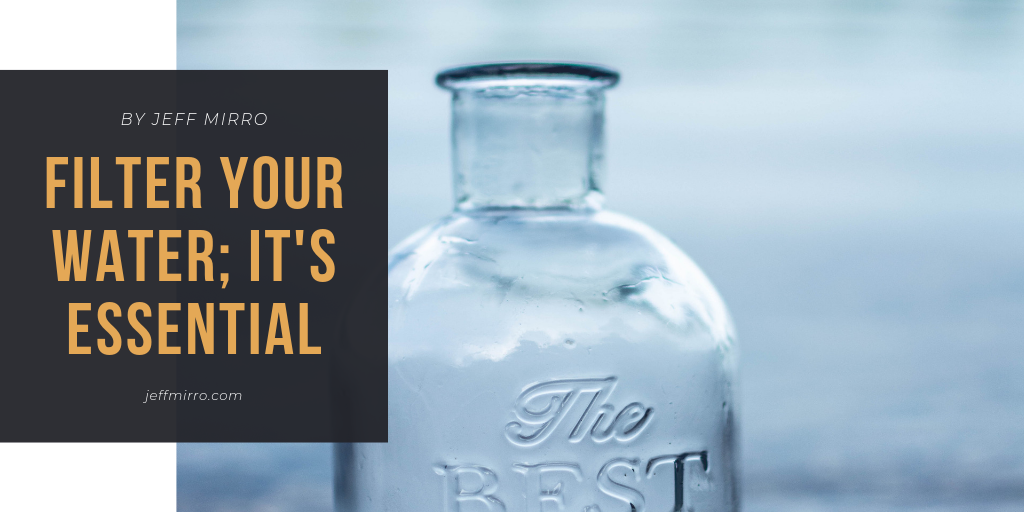So what exactly are the benefits of filtering your water, and what are the downsides if you choose not to?
When intermittent fasting, intermittent dry fasting, or fasting with water and salt, your cells are working overtime to clean out debris and renew themselves. They need the purest, cleanest water you can give them to flush away cellular waste and rehydrate.
All life sprang from water, and even though we might live on land today, our bodies are still heavily dependent on water. Up to 60 percent of your body is water, with some parts, such as your lungs, needing even more. Every time you drink, you replenish your body’s fluid levels. That’s why it’s so important that the water you drink is safe, clean and fresh.
Origins Matter
Reaching for the tap is second nature when we’re thirsty. It’s easy, accessible and always there, but that convenient tap or water fountain might have more than just water in it. Community water supplies are supposed to be safe, but they can contain chlorine and its byproducts, fluorine compounds, hormones, and pesticides. Some water supplies even have traces of potentially dangerous prescription drugs and even occasional pathogens.
Water has a long journey to make just to get to your glass. Once it’s drawn from its source, it has to be disinfected. Communities commonly use chlorine, chloramines, ammonia and other disinfectants to remove pathogens, and they use physical means for filtering your water to remove sediment and debris. Many communities also add fluoride to their water supplies. Once that’s done, the water begins to travel through miles of pipelines, some of which might be part of aging infrastructure systems, which leak industrial or farm run-off and other contaminants before it finally reaches your home or apartment. Your community probably tests its tap water regularly, but that isn’t necessarily going to catch all potential issues, which could leave you vulnerable.
Is Bottled Better?
You might be ready to switch to bottled after reading all that, but hold on for a minute. People buy about a million plastic bottles every minute. These bottles use about 17 barrels of oil to produce, and once they’re empty, they typically end up in landfills or the ocean. Only about 9 percent are ever recycled. They pollute the land, sicken wildlife and fill the ocean, and each bottle takes a mind-blowing 400 years to decompose. Bottled water is good in a pinch, but there’s a better alternative.
Filtering Your Water is the Future
Filtering your water gives you control over what goes into your body. Water filter systems remove bacteria, chemicals, heavy metals, bacteria, viruses and other unwanted contaminants from your tap water. Most use a combination of chemical and mechanical filtration for the best results. Activated carbon water purifiers are most commonly used in home filtering systems. The carbon traps contaminants as water moves through it and reduces chlorine and chlorine byproducts when it comes in contact with the water. It also traps sediment for a cleaner, purer water.
Reverse osmosis, ion exchange, and steam distillation filters are also good options that are just as effective, but some of these can also remove minerals, short-changing you of the calcium, potassium, and magnesium that your body desperately needs. When looking for the best water filter, make sure it is NSF-certified to remove the maximum amount of harmful contaminants possible.

